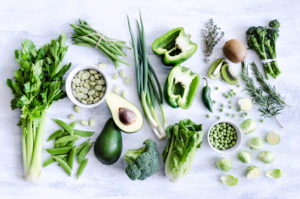
Unfortunately, things are not so easy. Memory slips and cognitive decline are commonplace with age. Low stimulation, inflammation, isolation, and more can all contribute to slow-downs on overall brain function. One thing that you might not consider, however, is how your diet influences brain health.
Diet can take a hit in advanced age. Aside from a smaller appetite, you may be less included to eat nutritious meals. Whether it is due to habit or a lack of desire in cooking, quality food intake can drop off in older populations and have a major impact on brain health.
Maintaining brain health and reducing memory loss and cognitive decline is multi-factorial, but what you eat can help or hinder. Here are some foods that are closely associated with improved brain health.
Leafy green vegetables: Spinach, kale, collards, and broccoli are all great sources of vitamin K and antioxidants that may help slow cognitive decline. Try including roughly three servings (1.5 cups) per day.
Fatty fish: Omega-3’s, particularly DHA, play a key role in brain health. Not only do omega 3’s have antioxidant effects, but they are also found in large amounts in the brain. Research has also linked them with lower levels of beta-amyloid, which are plaques that form in the brain and may contribute to Alzheimer’s. Tuna, salmon, and cod are ideal sources. Three servings per week are recommended.
Berries: Berries contain flavonoid antioxidants, which are associated with better memory. One study found that eating two or more cups of blueberries and strawberries per day could delay memory decline by more than two years.
Walnuts: These nuts are loaded with healthy fats that are associated with better memory. They are high in an omega-3 called ALA, which is associated with lower blood pressure and improved circulation, which helps ensure that more oxygen-rich blood reaches your brain. About a handful per day should give you everything you need.